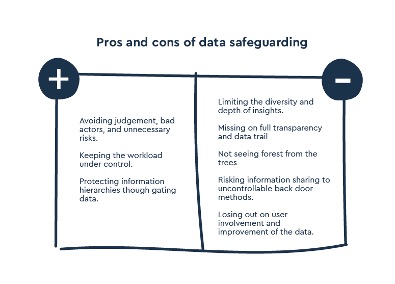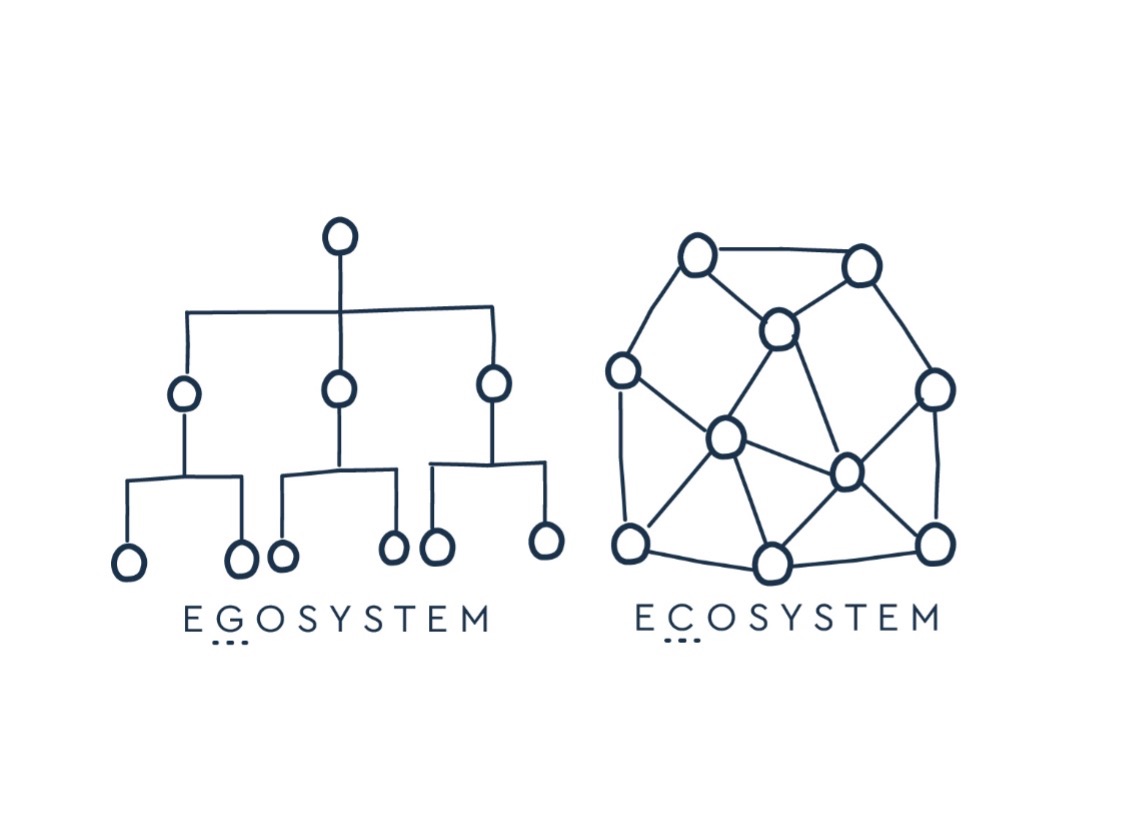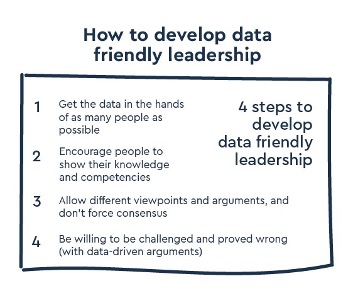Data democratization is making digital information accessible to wider audience so that the data is available, accessible, and understandable. Democratized data is accessible in a timely manner and understandable with a reasonable level of effort which enables a wide array of perspectives, insights, and knowledge for all users. Data democratization is the future of harnessing the value of data.
What does data democratization mean?
Data democratization is the effort to enable enterprise-wide access to data without gatekeepers and bottlenecks. It entails the ongoing effort to make sure that people of all technical abilities can talk comfortably about the data and make timely, informed, data-based decisions.
Democratization of data is often misunderstood, and rarely practiced. Everyone knows that data quality, security, and maintenance are important. But the instinct to protect data to keep it clean is counterproductive to data democratization. Overprotection leads to unfair distribution of information and opportunities to influence. The more data is shared, combined, and used, the greater the opportunity to create value based on new findings and innovations.
How do you democratize data?
For data to be democratized, there are some characteristics it needs to fulfil. The data must meet three criteria to be democratized:
- Data must be available: meaning that the data is somewhere ready to be grabbed in a timely manner without gatekeepers. The availability of the data can be influenced by the data architecture. Data can come from hundreds of sources, but that shouldn’t affect the ability to quickly access the relevant information.
- Data must be accessible: meaning that all (relevant) people can access it; there should be no unnecessary physical, social, lingual, or technical limitations to its access. Accessibility implies that even non-specialists can work with the data. The goal is to reduce as many barriers as possible: that means no fenced-off buildings and access for users of all abilities and disabilities.
- Data must be understandable: meaning that you don't need to be a data scientist to understand the important parts of the data. Understandability can relate to the intuitiveness and presentability of the data and interface. The objective is to support user comprehension of the data, and ultimately insights. They should be able to see the big picture, but also trace back to the smallest level of detail.
Pros and cons of data democratization
The protectionist view of data is understandable. There are many concerns with exposing data: data security & data leaks, surfacing uncomfortable truths and facing criticism, sharing departmental information, revealing personal information or expertise, even bad actors and negligence.
While democratization of data is a key step in an insights-driven transformation, it does not come free of charge for the IT and analytics teams. Sharing data without suitable self-service tools can overwhelm data teams as requests come pouring in from all corners of the company. Sharing data with more people leads to more unknowns—but an increased workload or other concerns should not be a reason to halt the democratization of data. The risks and challenges associated are manageable, with the right tools and process.
Moreover, it’s important to understand that democratizing data doesn’t just mean “data for everyone”. It means data in the hands of more unique minds and smart individuals, drawing broader insights and allowing participation in decision-making in a timely manner with as few limitations as possible. The benefits of moving towards a modern society far outweigh the risks and concerns.

From data egosystems to data ecosystems
An “egosystem” refers to an area where people with large egos exist, all trying to get their own initiatives and excellence through. Egoystems are based on the survivalist belief that the more power, status, and resources that I have, the safer I am. In egosystems, egos get in the way of connectivity. An egosystem is a system of delusions that supports a person's overinflated sense of self-worth and importance (source: Urban Dictionary).

Data is information. Information breeds knowledge. Knowledge is power. For too long, data has existed in egosystems rather than ecosystems. Ultimately, the question of who has access to data is a question of fairness; those with data have the power to understand and impact things. Traditionally, the ones at the top have the most information. Restricting access to data can be used as a weapon for keeping oneself in power. This eventually leads to ones higher on the corporate ladder hoarding knowledge and power, while those below have less influence and information. It limits their ability to put their competencies into use.
In traditional work hierarchies, data access has usually been limited to specific roles, functions, or locations. Realistically, in most organizations there is some data that cannot be shared with every employee. Yet too often, data is hidden because of fear of what might be revealed or surfaced, and that fear is masked as a data privacy concern. To put it bluntly, if you feel uncomfortable sharing your data, you should ask yourself: is there something you are trying to hide?
When everyone has the same information, the power dynamic changes. It inspires more meritocracy through a level playing field, though it can feel like a threat to those who have benefitted from the old information hierarchies. Therefore, democratization of data requires different leadership behavior.
How to develop data friendly leadership
Data-friendly leaders will make it their mission to expose as many people to the data as possible. They leverage it, share it, and avoid forcing consensus but instead lead with clear process, decision-making and vision. They allow for arguments and conflicting viewpoints - if they are supported by data – as to arrive at the best possible decision. Data-friendly leaders are willing to be challenged, and they understand that they can’t know everything themselves nor should they try to.

Data-friendly leaders don't feel threatened by being proven wrong—they welcome it. Democratization of data is about empowering people in their own work and encouraging them to show their knowledge and competence. Data helps people communicate their knowledge in an understandable way. It encourages continuous improvement and challenges bias. It should be the goal of leaders to get data in the hands of as many people as possible.
The democratization of data is a fundamental change in the way of working. There will need to be a clear alignment of responsibilities between business, operations, and IT during this change. Data democratization is a means to an end, but not the end point. New users must be able to increase their skills in decision-making with data. It is the responsibility of data leaders to be good listeners, pay attention to pain points, and lead by example in the new way of working. When managing the data democracy, leadership will be just as important as the tools and data.